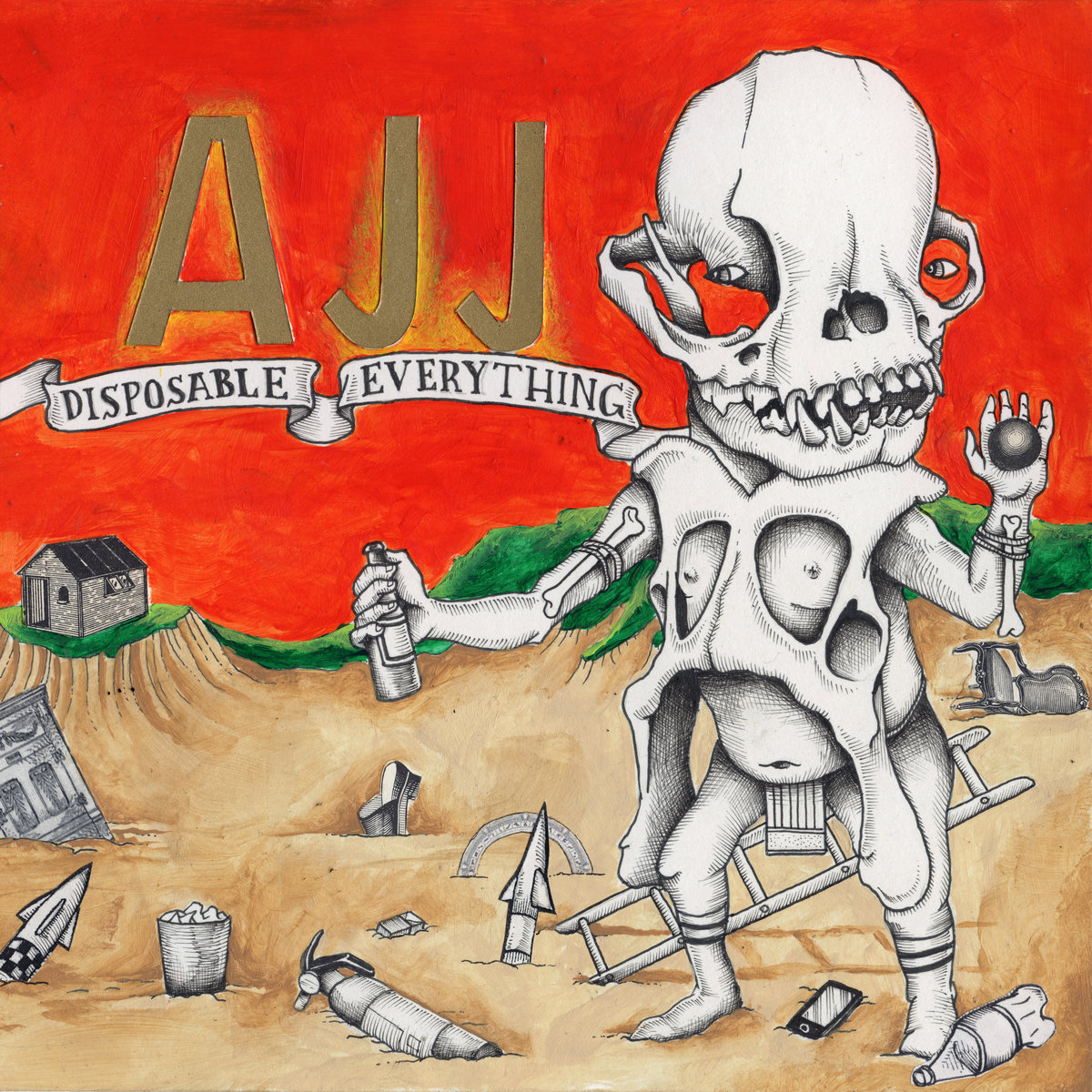AJJ
Disposable Everything
HOPELESS
Sometimes the world needs a band to make sense of it. These days (these years?) that’s the case more often than not. It was the disgraced shock rocker Marilyn Manson, who, some 23 years ago, remarked that “everything flourishes under conservative rule, because it gives people something to rail against.” He’s not wrong, but he also probably underestimated the apathy of all those white women who were so vocal when he was in his mid-’90s prime trolling American Christianity as the God of Fuck/Antichrist Superstar, and again when that terrible orange man was the president. Now that Biden and his female VP of color are in charge of the neoliberal death machine, they aren’t so worried anymore.
Thankfully, AJJ know what’s up. They always have, to be fair, and songwriter Sean Bonnette has often presented a doom-laden vision of the world in which a Biblical apocalypse seems to be on the verge of reality. Only this time, with their eighth album Disposable Everything, it feels more real—more post-/during-apocalypse than foreshadowing of it (not surprising, given we’re facing an extinction-level environmental threat thanks to capitalism-ushered climate change). Cue the fourth song on this record, “Death Machine,” a terrifically frenetic indictment of capitalism and humans’ seemingly unwavering faith in that unsustainable, self-destructive system: “I’m not being hyperbolic / This place is a death machine / Literally and symbolic in the belly of the death machine / Doesn’t matter who is steering / It’s just gonna keep on killing / ’Til we find a way to finally break the routine.”
If that song is the heart of this album’s context, the other 13 offer varied interpretations of what that means on both a personal and universal level. Much of this record was inspired by the death of Bonnette’s mother and his need—despite that, despite the state of the world—to keep moving forward. And in usual AJJ style, it’s carried out with a wonderful mix of pathos and humor. The title track, for example, is full of hope despite the fact that it’s about how terrible capitalism has made everything, while “The Baby Panda” is an upbeat, jaunty song about the pending extinction of its title subject and “Candles of Love” is a beautiful ballad about sexual pleasure. Then there’s “Dissonance,” which begins with a spoken declaration of “solidarity forever”—the title of the popular trade union anthem, which AJJ have previously covered—and which turns the self-examination of despair into a wonderfully singalong-able, almost-happy expression of hope.
The record ends—via, among other songs, the jittery blast of “I Hate Rock and Roll Again” (which pays tribute to both Daniel Johnston and a not-yet-deceased Neil Young), the deeply dark humor of “Schadenfreude,” and their second sequel to a sacred text “I Wanna Be Your Dog 2”—with the plaintive, lullaby-esque lilt of “In the Valley,” which is so soothing it makes everything you’ve heard about humanity’s impending death feel just about OK. It almost makes you want to lie down in a coffin and wait for the end, but that’s not the right answer, obviously. An incredibly prescient and powerful, important and moving record.









